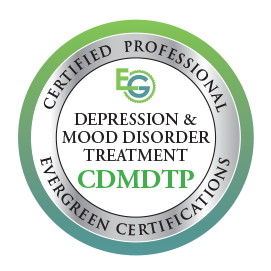Long term Depression and Dysthimia
Long term depression is different in a number of regards from shorter term or reactive depression. Not only is the obvious true, that it has been going on for longer, but because of this patterns and effects develop over time.
“I do not see the point in carrying on”
“I can’t see the point anymore”
“People would be better off without me”
“if I was gone my partner would be better off with someone else”
“It’s Hopeless, there is no way out of this!”
“I feel trapped, there’s no escape!”
“I can’t see a way out of this, there is no solution”
“Things will never change, I’m stuck”
“I get the sweats and feel shaky”
“My breathing gets fast and I get chest tightness”
“I blush / flush and feel self conscious”
“I wish the ground would open up and swallow me”
“I can’t face seeing people”
“There’s no way I could go out”
“I feel so nervous I feel sick”
“I need a drink to talk to anyone, and sometimes then I get a bit nuts”
Long term Depression can be disabling
Having any long term health or mental health condition can be disabling because of both the stress and discomfort over time wearing the person down who is trying to cope with the condition, and also because it causes long term effects on lifestyle and wellbeing. Reoccuring depression takes a number of forms including Dysthimia.
Loss of activities with depression
Over time activities may be curtailed, income may be restricted, career and education choices can be put off or abandoned. These all cause effects in the environment and life experience of the sufferer, which in turn causes greater depression and lack of motivation.
Additional health effects of depression
Additional health effects can develop. Reduced exercise, poor diet, poor sleeping patterns and perhaps a lack of interaction and social life can all cause additional health effects. Co-morbidity (presence of more than one condition) may also result if addictions develop through trying to control mood with drinking or other substances.
Interpersonal effects of depression
Often depression, or indeed many other long term health conditions, which may co-exist, can get in the way of relationships. Being unable to enjoy relationships, variable mood, inability to socialise, not being emotionally stable and people “walking on egg shells” are just some of the effects long term depression can have on existing relationships. And of course developing new relationships is hard when demotivated and not “out there” doing things.
Psychological therapy for long term depression
The most effective response is a multi-layered one. This is why both research and NICE indicate a number of useful responses in combination. These include:
- Cognitive behavioural psychological therapies (recommended by NICE) for determining what negative patterns exist now, and might benefit from change.
- Cognitive Behavioural Analysis (see the references on the CBASP page) for analysing the developmental patterns that contributed to the depression or worsened it, so that these can be challenged or modified.
- Short term psychoanalysis of the psychodynamic variety (recommended by NICE), again looking at the underlying causes and contributions. Some clients choose to extend this to longer term therapy support and personal development.
- Psycho-education (recommended by NICE) which teaches the client new ideas and strategies as well as providing understanding of why certain things happen, certain feelings occur and why certain patterns of behaviour make things better or worse.
- Relaxation, meditation, mindfulness or hypnosis based methods of stress reduction and management (referenced within NICE standards).
- Interpersonal Psychotherapy (contained with CBASP and recommended by NICE), which assists the client to modify, improve and rebuild relationships through understanding, modification and new strategies.
Key words:
Psychotherapy, psychoanalysis, depression, counselling, long term depression, depression counselling, depression therapy, Dysthimia, psychodynamic therapy, CBASP, CBT, IPT, mindfulness, co-morbidity, psycho-education, hypnosis, hypnotherapy, meditation, MCBT, analytic therapy, psychoanalyst, psychotherapist, counsellor, therapist, Edinburgh, Dublin, Falkirk, Scotland
Contact via the contact us page HERE






